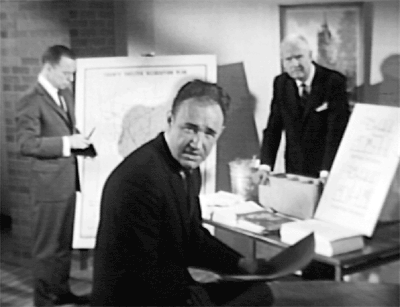Poor John Hindrocket. Hampered by his own desire to be right, he can’t see the plain evidence in front of his face. Here’s what he writes in his post "Someone’s Misreporting This Story":
Yesterday, five former judges of the FISA court testified before the Senate Judiciary Committee on the National Security Agency’s international terrorist surveillance program. Some observers have alleged that the NSA program is illegal to the extent that it includes surveillance conducted without a FISA court order.
John’s problem is that the headline in the Moonie-owned Washington Times says: "FISA Judges Say Bush Within Law", but the New York Times coverage [subscription required] says (under the headline the neutral headline "Judges on Secretive Panel Speak Out on Spy Program"):
…several former judges who served on the panel also voiced skepticism at a Senate hearing about the president’s constitutional authority to order wiretapping on Americans without a court order.
So which news account is accurate here? That’s what John wants to know.
Well, let’s look at the Washington Times story. The first paragraph:
A panel of former Foreign Intelligence Surveillance Court judges yesterday told members of the Senate Judiciary Committee that President Bush did not act illegally when he created by executive order a wiretapping program conducted by the National Security Agency (NSA).
So far, so good. That seems consistent with the story’s headline ("FISA Judges Say Bush Within Law").
But now the second paragraph:
The five judges testifying before the committee said they could not speak specifically to the NSA listening program without being briefed on it, but that a Foreign Intelligence Surveillance Act does not override the president’s constitutional authority to spy on suspected international agents under executive order.
Ah. Well, that’s a total contradiction of the first paragraph AND the headline. According to the second paragraph, the five FISA judges didn’t opine at all about the specifics of Bush’s program, or whether or not it "within law".
So right off the bat, you’ve got a self-contradictory report from the Washington Times which, if not misreporting, is spinning what the judges "say".
Now, the third paragraph from Washington Times:
"If a court refuses a FISA application and there is not sufficient time for the president to go to the court of review, the president can under executive order act unilaterally, which he is doing now," said Judge Allan Kornblum, magistrate judge of the U.S. District Court for the Northern District of Florida and an author of the 1978 FISA Act. "I think that the president would be remiss exercising his constitutional authority by giving all of that power over to a statute."
This is the part of the story that John latches on to. Judge Kornblum seems to think think that Bush has the constitutional authority to conduct the wiretapping, hence the headline "FISA Judges Say Bush Within Law".
There’s only one problem. Judge Allan Kornblum isn’t, and never was, a FISA judge. The Washington Times piece fails to point this out.
But the New York Times piece, reprinted here, does:
Five former judges on the nation’s most secretive court, including one who resigned in apparent protest over President George W. Bush’s domestic eavesdropping, have urged Congress to give the court a formal role in overseeing the surveillance program.
In a rare glimpse Tuesday into the inner workings of the secretive court, known as the Foreign Intelligence Surveillance Court, several former judges who served on the panel also voiced skepticism at a Senate hearing about the president’s constitutional authority to order wiretapping on Americans without a court order. And they suggested that the program could imperil criminal prosecutions that grew out of the wiretaps.
Harold Baker, a sitting federal judge in Illinois who served on the intelligence court until last year, said that the president is bound by the law "like everyone else."
***
Committee members also heard portions of a letter in support of the proposal from a fifth judge, James Robertson, who left the court last December days after the eavesdropping program was disclosed.
Bush’s decision to effectively bypass the court in permitting eavesdropping without warrants has raised the court’s profile. That was underscored by the appearance on Tuesday of the four former judges on the court – Baker; Stanley Brotman, who left the panel in 2004; John Keenan, who left in 2001, and William Stafford Jr., who left in 2003. All four still sit on the federal judiciary.
So John asks:
Is [NYT reporter] Lichtblau’s commitment to that proposition causing him to report falsely on testimony that was given to a Senate committee? Or did the Washington Times go too far in characterizing the judges’ approval of the NSA program?
Well, John. Seeing as how the Washington Times story is self-contradictory, biased, sloppy and/or misleading (take your pick), I think you’ve got your answer.











 Meet intelligent design’s stupider younger brother:
Meet intelligent design’s stupider younger brother: